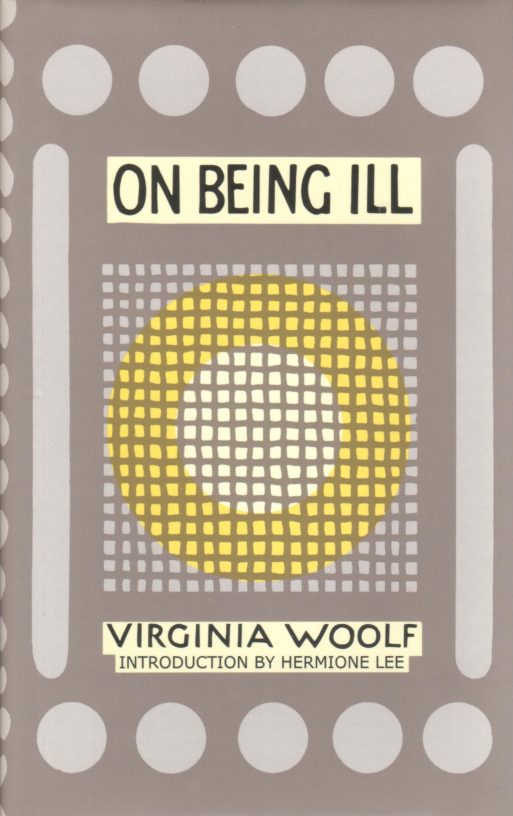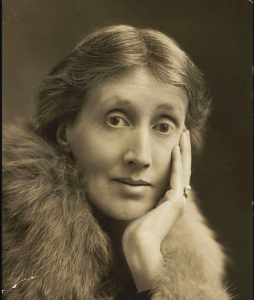 Most recognized for her feminist novels, Virginia Woolf also broke literary barriers tackling a topic previously shunned by American writers: sickness. “On Being Ill” first appeared in 1926, in an early issue of T.S. Eliot’s literary review, the New Criterion. In the essay, Woolf seeks to establish illness as a serious subject for literature along with the more traditional topics of love, jealousy and war.
Most recognized for her feminist novels, Virginia Woolf also broke literary barriers tackling a topic previously shunned by American writers: sickness. “On Being Ill” first appeared in 1926, in an early issue of T.S. Eliot’s literary review, the New Criterion. In the essay, Woolf seeks to establish illness as a serious subject for literature along with the more traditional topics of love, jealousy and war.
Reissued as a short book in 2002 and again in 2012, “On Being Ill” begins with a very long sentence that is both revelatory and droll in its acknowledgement of the “spiritual change” illness brings, whether the malady is the flu or a tooth extraction. Woolf maintains that this transformation of spirit due to illness has been ignored by writers for too long. While death may have gotten its due, she asserts that “there is no record” of “this daily drama of the body,” proposing that a new language be invented to describe pain and the experience of life as a patient reclined in a sick bed.
The backstory behind the essay begins with Woolf having fainted at a party at her sister’s house in Charleston in the summer of 1925. Well known by then, she was, at the time, full of ideas for starting her next novel, “To the Lighthouse.” The fainting spell precipitated months and months of illness. Just as her condition improved, she contracted German measles. The writer’s letters and diary from that time reflect her frustration and distress.
In the introduction to the 2002 edition of the essay, Woolf’s biographer Hermione Lee says that as a piece of writing, “On Being Ill” defied fitting into any of the categories of previous literary nonfiction. It was, Lee explains, “not manifesto, or literary criticism, or feminist argument, or meditation on life, or fiction or biography or history or autobiography, but a curious, original mixture of all these.”
Lee goes on to say, “This essay has, in recent years, gained another kind of recognition in a burgeoning literature of pathology, cited on medical web-sites. . . ”
Thus, the genre of literary medical writing was born, a sub-genre of nonfiction.
In her musings, Woolf observes that illness enhances our perceptions and reduces self-consciousness, a process which, when pondered, becomes “the great confessional” that changes one’s relationship with the world. It is as if she foresees the emergence of the medical memoir, often described as confessional, that will gain widespread popularity well before the new millennium.

Virginia Woolf
“How ahead of her time was this woman!” I thought as I worked through her layered thinking and laborious sentence structure, worth every pause and review. Her brave meditation on malady paved the literary path to such illuminating memoirs as Joan Didion’s “The Year of Magical Thinking,” (grieving), Lucy Grealy’s “Autobiography of a Face” (cancer), and Susannah Cahalan’s “Brain on Fire” (anti-NMDA receptor encephalitis). Even in the layman’s hands, reflecting upon one’s illness in writing has become a means to improving medical practice and the patient experience through narratives purposefully penned by patients.
The 2012 republished edition of “On Being Ill” also includes Notes from Sick Rooms by Julia Stephen, which addresses illness from the caregiver’s perspective. The author/caregiver in this case happens to be Virginia Woolf”s mother. With a similar blend of humor and pathos, Stephen offers concrete and useful information to caregivers. The London Review of Books likens Stephen to the sort of person you would want to meet in a hospital consulting-room, or at the scene of a disaster — which makes me pretty sure daughter Virginia is a splinter off the same tongue depressor as mother Julia.

 “On Being Ill” by Virginia Woolf
“On Being Ill” by Virginia Woolf


 Flawed Kidney Function Test Discriminated Against Black Patients
Flawed Kidney Function Test Discriminated Against Black Patients

 Harmony Amidst Change: Japan’s Kezouin Fuchu-shi Cemetery
Harmony Amidst Change: Japan’s Kezouin Fuchu-shi Cemetery














